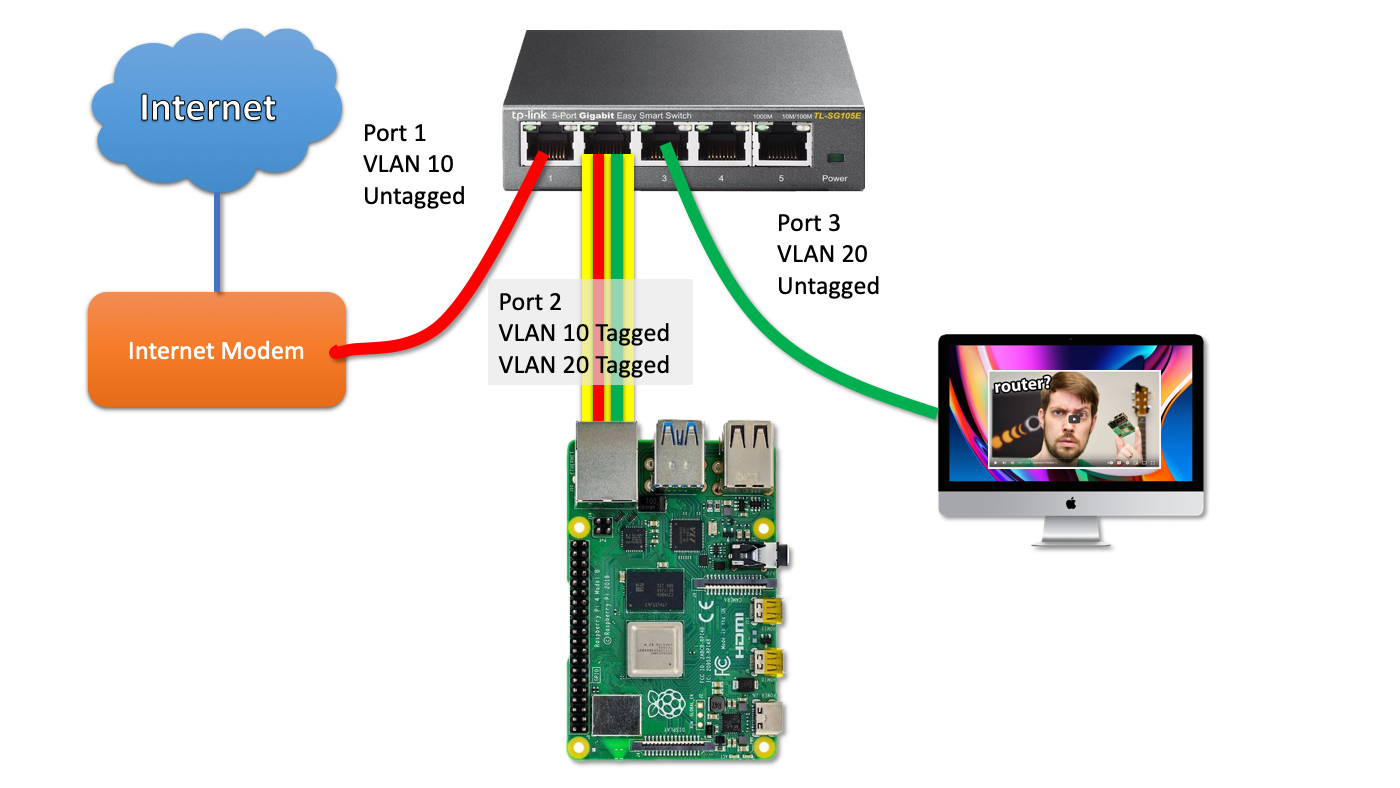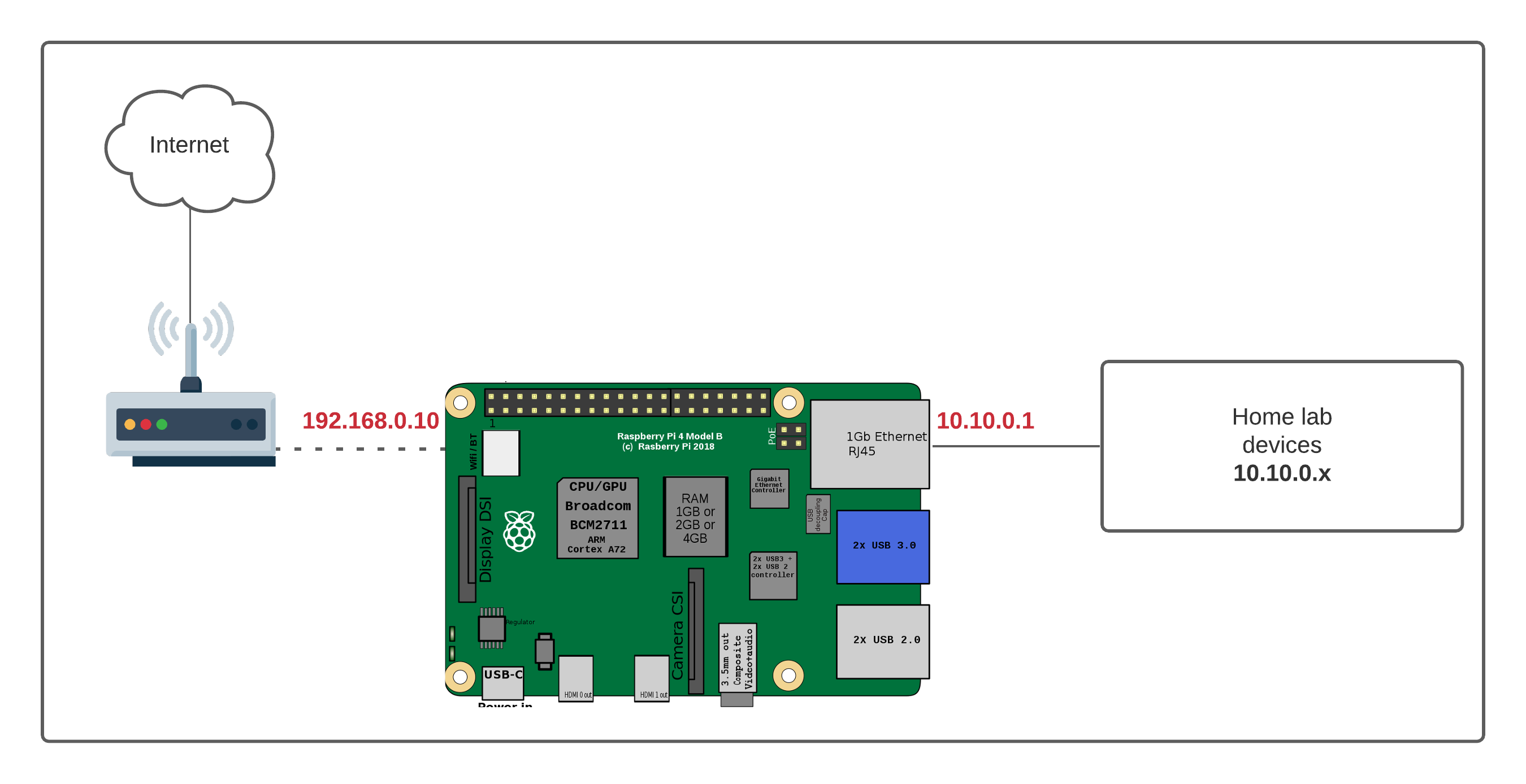Create A Secure Home: Raspberry Pi Firewall Router Guide
Could a tiny computer, no larger than a deck of cards, truly safeguard your digital life? The Raspberry Pi, a marvel of modern technology, when configured as a firewall router, offers robust security features, often surpassing the capabilities of commercially available routers, and at a fraction of the cost. This isn't just a technical possibility; it's a practical reality for those seeking to control and protect their network.
In the realm of home and small business networking, the default setup often involves a consumer-grade router. These devices, while convenient, frequently come with security limitations and opaque configurations. They may lack the fine-grained control needed to monitor and manage network traffic effectively. In contrast, a Raspberry Pi-based firewall router empowers the user with comprehensive control, enabling them to meticulously shape their network's security posture.
The allure of the Raspberry Pi lies in its versatility and accessibility. It's an open-source platform, meaning that its hardware and software are readily available for inspection and modification. This transparency fosters a community of developers who constantly refine and improve the platform's security features. The price point is also a significant advantage. Unlike enterprise-grade security appliances, the Raspberry Pi offers a cost-effective solution, making advanced network security accessible to a wider audience. This democratization of security is a key factor in its increasing popularity.
The core function of a firewall router is to act as a gatekeeper for your network, examining incoming and outgoing network traffic and deciding whether to allow or block it based on a set of predefined rules. These rules can be customized to filter specific types of traffic, block access to malicious websites, and protect against unauthorized access. By controlling all inbound and outbound connections, the Raspberry Pi firewall router provides a crucial first line of defense against cyber threats. This includes protection from malware, phishing attempts, and other forms of online attacks.
Setting up a Raspberry Pi as a firewall router involves several key steps. First, you'll need a Raspberry Pi board, along with the necessary accessories, such as a power supply, an SD card for storage, and a network cable. Next, you'll need to install a suitable operating system, typically a Linux distribution like Debian or Ubuntu, which is then configured with firewall software, such as `iptables` or `nftables`. Finally, you'll configure the network interfaces and define the firewall rules that will govern network traffic. This process, while technical, is well-documented, with ample online resources available to guide users through each step.
Let's delve into the technical aspects. Iptables and nftables are powerful firewall utilities, offering the user granular control over network traffic. These tools allow the creation of detailed rules, specifying criteria such as source and destination IP addresses, ports, and protocols. For instance, you can create a rule to block all traffic from a specific IP address, preventing a known attacker from accessing your network. Or, you can create a rule that only allows traffic on specific ports, thus limiting your network's attack surface. The configuration of these rules requires careful planning, but the resulting control over network traffic is unparalleled.
Beyond basic firewall functionality, a Raspberry Pi can also function as a router, managing the flow of traffic between different networks. This often involves the use of Network Address Translation (NAT), which allows multiple devices on a private network to share a single public IP address. NAT is a crucial aspect of home networking, enabling devices behind the firewall to access the internet. Furthermore, the Raspberry Pi can be configured to provide Dynamic Host Configuration Protocol (DHCP) services, automatically assigning IP addresses to devices that connect to the network, which simplify network management.
The benefits of using a Raspberry Pi as a firewall router extend beyond security. It can also enhance network performance. By controlling network traffic, you can prioritize certain types of traffic, such as streaming video or online gaming, improving the user experience. Furthermore, the Raspberry Pi's processing power can be leveraged for other network-related tasks, such as content filtering, ad blocking, and intrusion detection. This consolidation of network functions makes the Raspberry Pi a versatile and valuable tool.
To fully understand the benefits, consider the vulnerabilities inherent in standard consumer routers. These devices often have security flaws that are not regularly patched by manufacturers, leaving users vulnerable to exploitation. Their closed-source nature means users cannot inspect the software for vulnerabilities, further increasing the security risk. The Raspberry Pi, with its open-source nature and active community, offers a distinct advantage. The community constantly identifies and addresses vulnerabilities, ensuring that your firewall router is up-to-date and secure. The control you have over the software and configurations also allows for a more proactive security posture.
One of the most compelling advantages of a Raspberry Pi-based firewall router is its ability to run advanced security features. VPN (Virtual Private Network) functionality can be integrated, allowing you to encrypt your network traffic, protecting your privacy and security when using public Wi-Fi networks. Intrusion detection systems (IDS) can be implemented to monitor network traffic for malicious activity, alerting you to potential threats. Furthermore, the Raspberry Pi can be configured to use advanced packet filtering techniques, such as deep packet inspection (DPI), to examine the contents of network traffic and identify malicious payloads.
While the benefits are clear, there are challenges to consider. Setting up a Raspberry Pi firewall router requires technical expertise. You'll need to understand networking concepts, such as IP addressing, subnetting, and firewall rules. The configuration process can be time-consuming, requiring patience and careful attention to detail. Furthermore, maintaining the system requires ongoing effort, including regular updates and security patches. However, the knowledge gained and the increased security often outweigh the initial effort.
The landscape of networking and security is constantly evolving. New threats emerge daily, requiring a proactive approach to security. The Raspberry Pi provides a platform that can adapt to these changing threats. It's a flexible platform that can be customized to meet your specific security needs. Regular updates, combined with constant monitoring, will ensure the continued effectiveness of your firewall router. This dynamic approach to security is a key characteristic of a Raspberry Pi based solution.
Beyond the technical aspects, the cost-effectiveness of a Raspberry Pi firewall router is noteworthy. The initial investment in the Raspberry Pi hardware is minimal compared to the cost of commercial security appliances. The ongoing costs are also low, primarily involving electricity consumption. The long-term benefits, in terms of security, control, and performance, often justify the initial investment and ongoing maintenance. This financial advantage makes this a particularly attractive option for budget-conscious individuals and small businesses.
In conclusion, the Raspberry Pi, when configured as a firewall router, represents a powerful and versatile solution for securing your network. It empowers you with control, offers advanced security features, and provides a cost-effective alternative to commercial solutions. While technical expertise is required, the benefits in terms of security, performance, and control make it a compelling choice for those seeking to take control of their digital security. In an increasingly interconnected world, the ability to protect your network is more important than ever, and the Raspberry Pi provides a practical path towards that goal.
Let's examine some of the core advantages in detail:
- Enhanced Security: Superior control over network traffic and advanced features compared to standard routers.
- Cost-Effectiveness: Significantly lower initial and ongoing costs than commercial security appliances.
- Customization: Ability to tailor the system to meet specific security needs.
- Flexibility: Adaptability to changing security threats and evolving technologies.
- Learning Opportunity: Provides a platform for learning about network security and administration.



